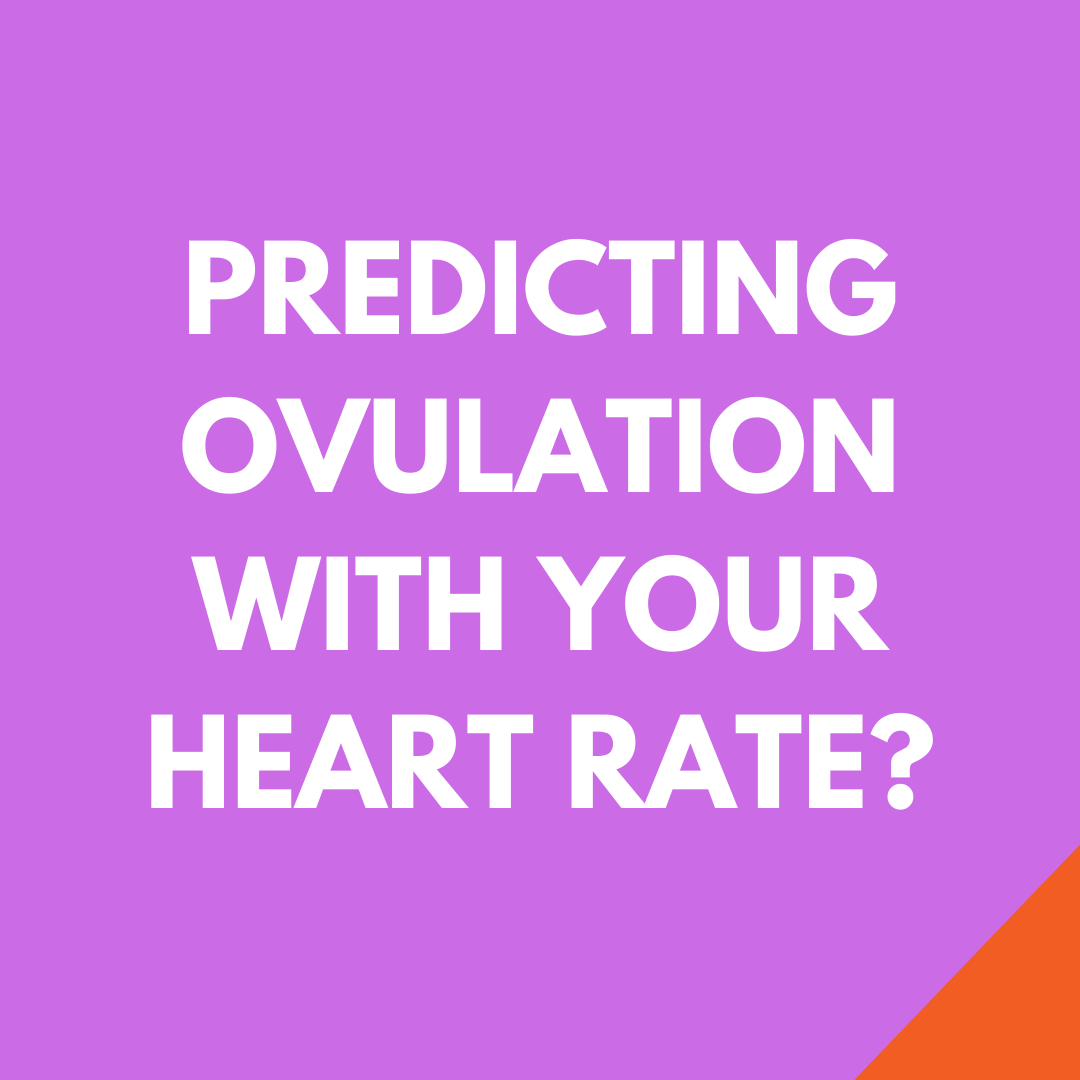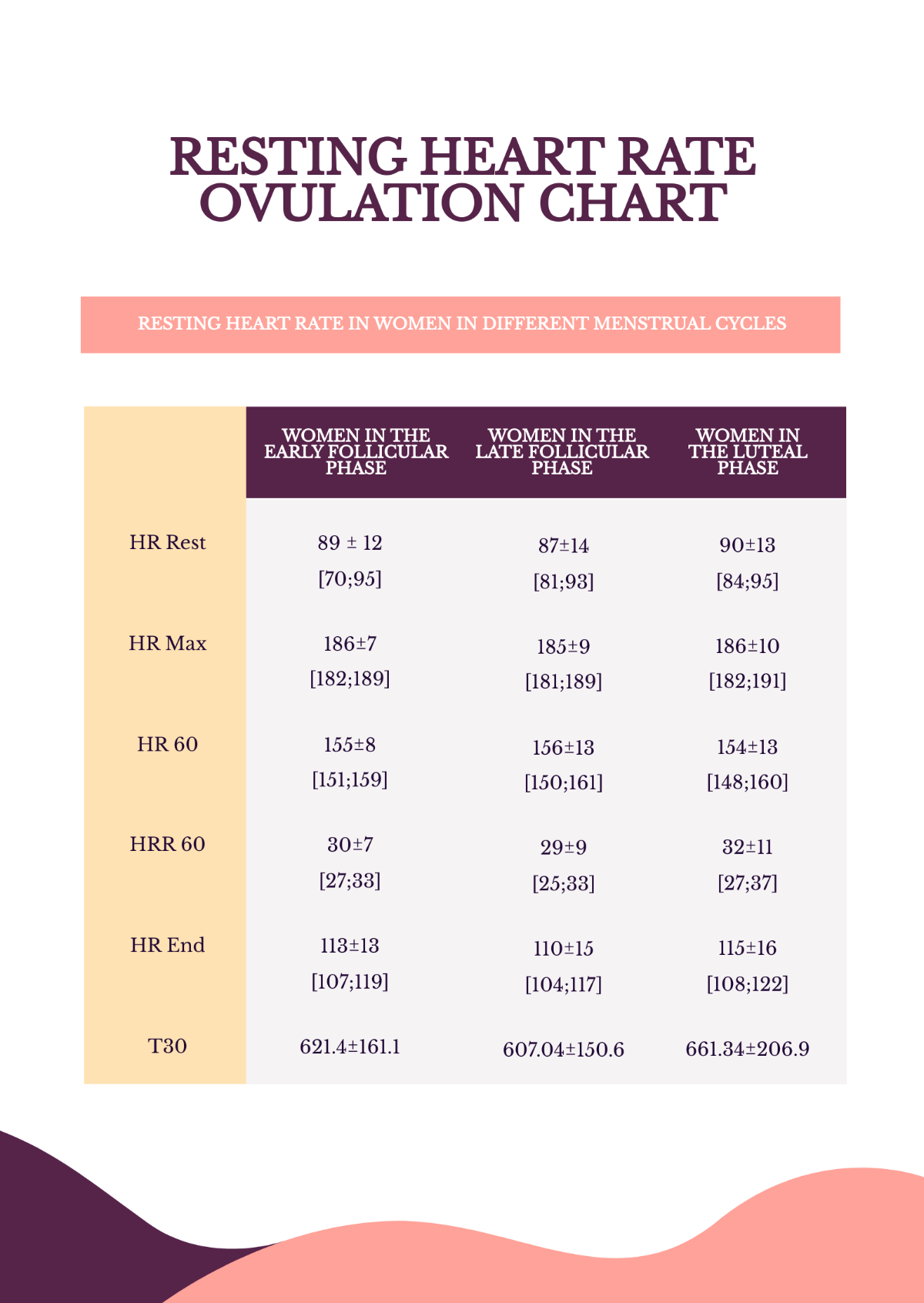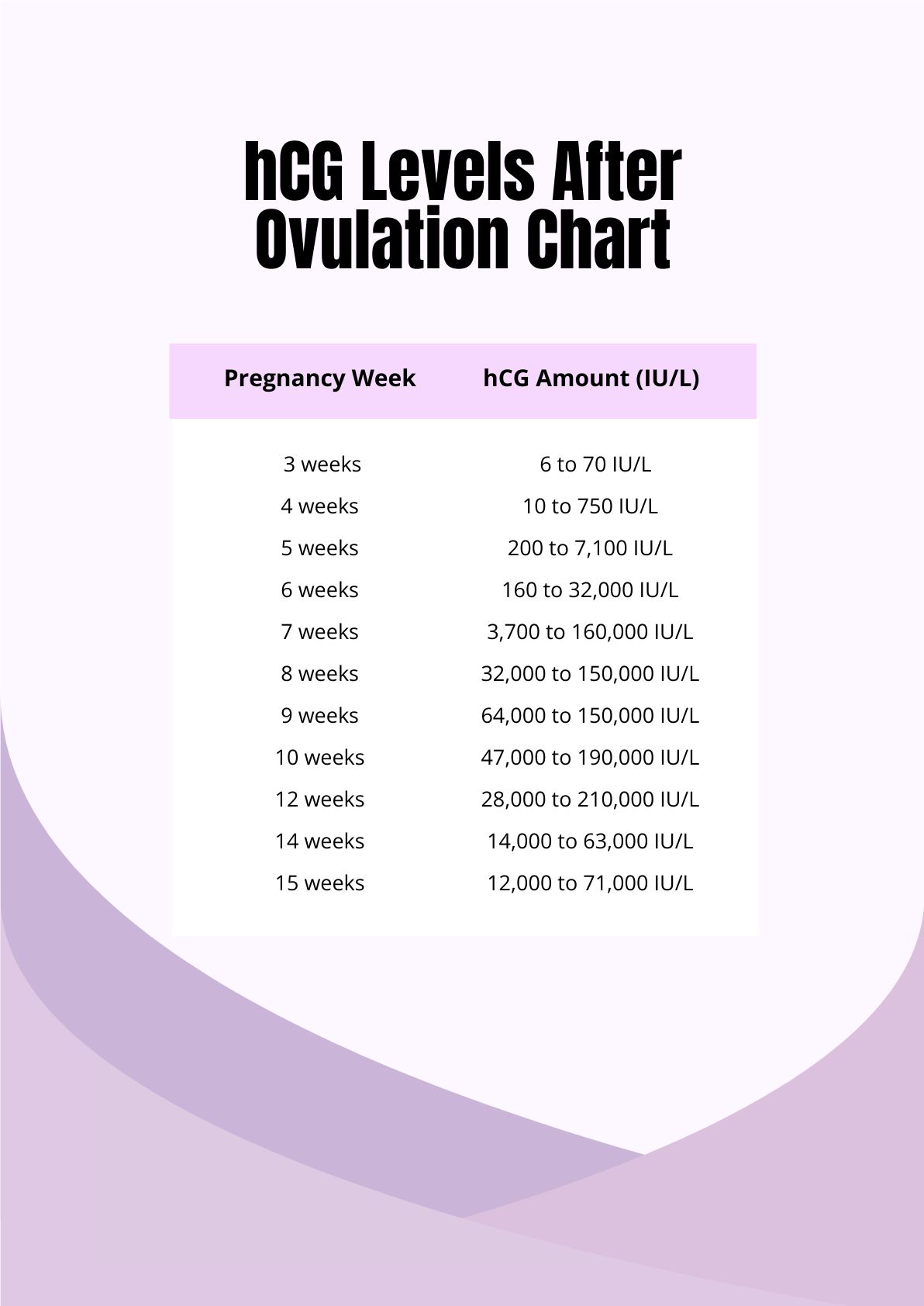Ovulation Heart Rate
Ovulation Heart Rate - It decreases slightly during your period and the. A study of 49 healthy premenopausal women with a regular menstrual cycle found a significantly lower average heart rate (−2.33 bpm), but an. Generally, your heart rate increases slightly during ovulation and the week afterward (luteal phase). Heart rate variability (hrv), which is a measure of the cardiac autonomic tonus, displays physiological changes throughout the.
A study of 49 healthy premenopausal women with a regular menstrual cycle found a significantly lower average heart rate (−2.33 bpm), but an. Heart rate variability (hrv), which is a measure of the cardiac autonomic tonus, displays physiological changes throughout the. Generally, your heart rate increases slightly during ovulation and the week afterward (luteal phase). It decreases slightly during your period and the.
It decreases slightly during your period and the. A study of 49 healthy premenopausal women with a regular menstrual cycle found a significantly lower average heart rate (−2.33 bpm), but an. Heart rate variability (hrv), which is a measure of the cardiac autonomic tonus, displays physiological changes throughout the. Generally, your heart rate increases slightly during ovulation and the week afterward (luteal phase).
How Your Heart Rate Monitor Can Help You Get Pregnant Storkacademy
A study of 49 healthy premenopausal women with a regular menstrual cycle found a significantly lower average heart rate (−2.33 bpm), but an. Generally, your heart rate increases slightly during ovulation and the week afterward (luteal phase). It decreases slightly during your period and the. Heart rate variability (hrv), which is a measure of the cardiac autonomic tonus, displays physiological.
How To Read a Premom Ovulation & BBT Chart Homedoc
It decreases slightly during your period and the. Heart rate variability (hrv), which is a measure of the cardiac autonomic tonus, displays physiological changes throughout the. Generally, your heart rate increases slightly during ovulation and the week afterward (luteal phase). A study of 49 healthy premenopausal women with a regular menstrual cycle found a significantly lower average heart rate (−2.33.
Heart Rate Variability (HRV) and the menstrual cycle
Heart rate variability (hrv), which is a measure of the cardiac autonomic tonus, displays physiological changes throughout the. A study of 49 healthy premenopausal women with a regular menstrual cycle found a significantly lower average heart rate (−2.33 bpm), but an. Generally, your heart rate increases slightly during ovulation and the week afterward (luteal phase). It decreases slightly during your.
Menstrual Cycle Graphic. Average Menstrual Cycle Days. Bleeding Period
It decreases slightly during your period and the. Generally, your heart rate increases slightly during ovulation and the week afterward (luteal phase). Heart rate variability (hrv), which is a measure of the cardiac autonomic tonus, displays physiological changes throughout the. A study of 49 healthy premenopausal women with a regular menstrual cycle found a significantly lower average heart rate (−2.33.
Free Resting Heart Rate Ovulation Chart Template Edit Online
A study of 49 healthy premenopausal women with a regular menstrual cycle found a significantly lower average heart rate (−2.33 bpm), but an. Heart rate variability (hrv), which is a measure of the cardiac autonomic tonus, displays physiological changes throughout the. Generally, your heart rate increases slightly during ovulation and the week afterward (luteal phase). It decreases slightly during your.
Ovulation Chart Download
Heart rate variability (hrv), which is a measure of the cardiac autonomic tonus, displays physiological changes throughout the. A study of 49 healthy premenopausal women with a regular menstrual cycle found a significantly lower average heart rate (−2.33 bpm), but an. Generally, your heart rate increases slightly during ovulation and the week afterward (luteal phase). It decreases slightly during your.
Hcg Levels
A study of 49 healthy premenopausal women with a regular menstrual cycle found a significantly lower average heart rate (−2.33 bpm), but an. Heart rate variability (hrv), which is a measure of the cardiac autonomic tonus, displays physiological changes throughout the. It decreases slightly during your period and the. Generally, your heart rate increases slightly during ovulation and the week.
Heart Rate Variability (HRV) and the menstrual cycle
Heart rate variability (hrv), which is a measure of the cardiac autonomic tonus, displays physiological changes throughout the. It decreases slightly during your period and the. Generally, your heart rate increases slightly during ovulation and the week afterward (luteal phase). A study of 49 healthy premenopausal women with a regular menstrual cycle found a significantly lower average heart rate (−2.33.
GitHub mujtabax18/MonthlyOvulationPredictionmatlab Monthly
Generally, your heart rate increases slightly during ovulation and the week afterward (luteal phase). It decreases slightly during your period and the. A study of 49 healthy premenopausal women with a regular menstrual cycle found a significantly lower average heart rate (−2.33 bpm), but an. Heart rate variability (hrv), which is a measure of the cardiac autonomic tonus, displays physiological.
A different kind of chart. Ovulation is marked in red and BFP is marked
It decreases slightly during your period and the. Generally, your heart rate increases slightly during ovulation and the week afterward (luteal phase). Heart rate variability (hrv), which is a measure of the cardiac autonomic tonus, displays physiological changes throughout the. A study of 49 healthy premenopausal women with a regular menstrual cycle found a significantly lower average heart rate (−2.33.
Heart Rate Variability (Hrv), Which Is A Measure Of The Cardiac Autonomic Tonus, Displays Physiological Changes Throughout The.
A study of 49 healthy premenopausal women with a regular menstrual cycle found a significantly lower average heart rate (−2.33 bpm), but an. Generally, your heart rate increases slightly during ovulation and the week afterward (luteal phase). It decreases slightly during your period and the.








